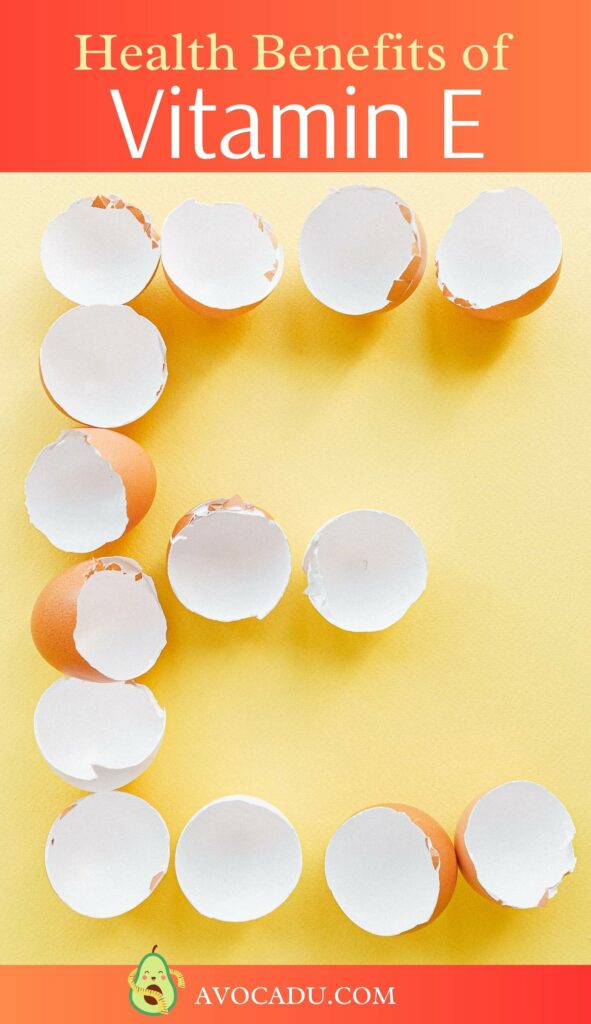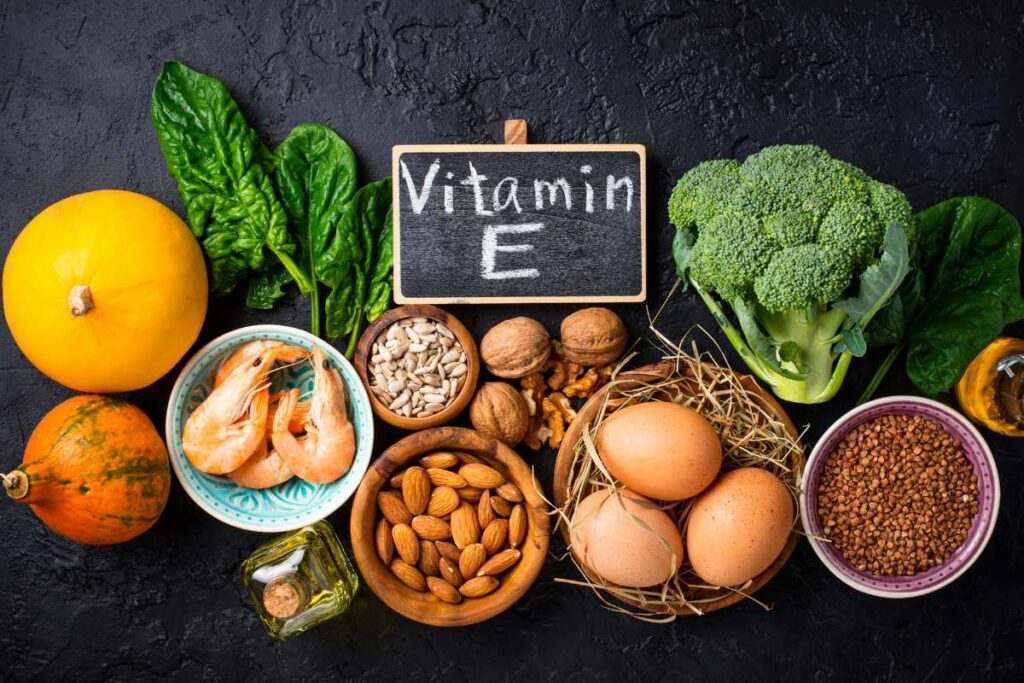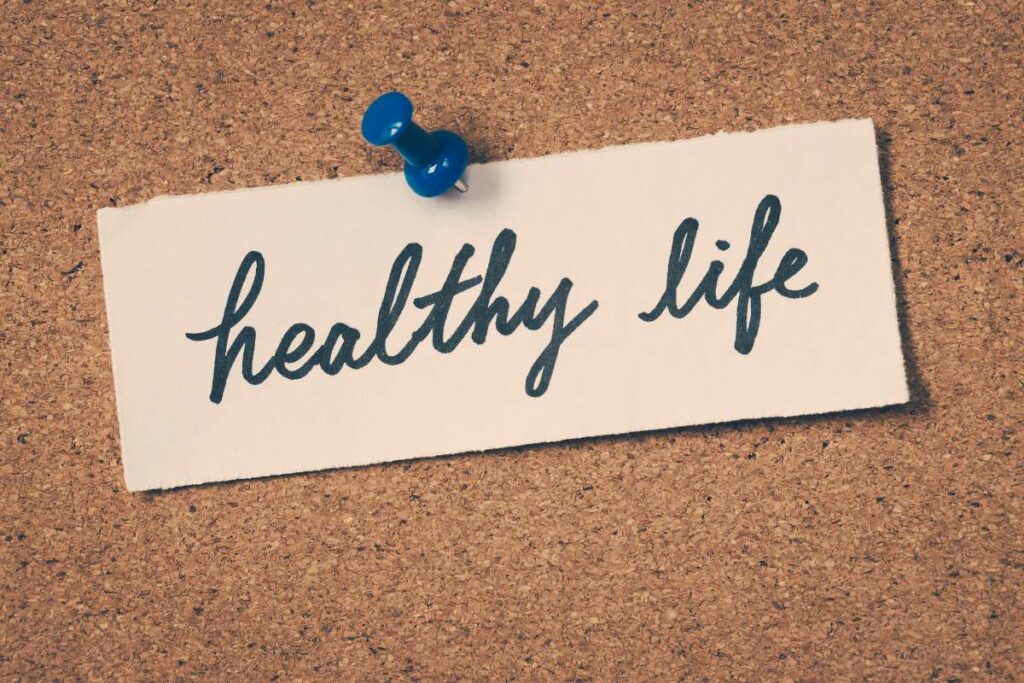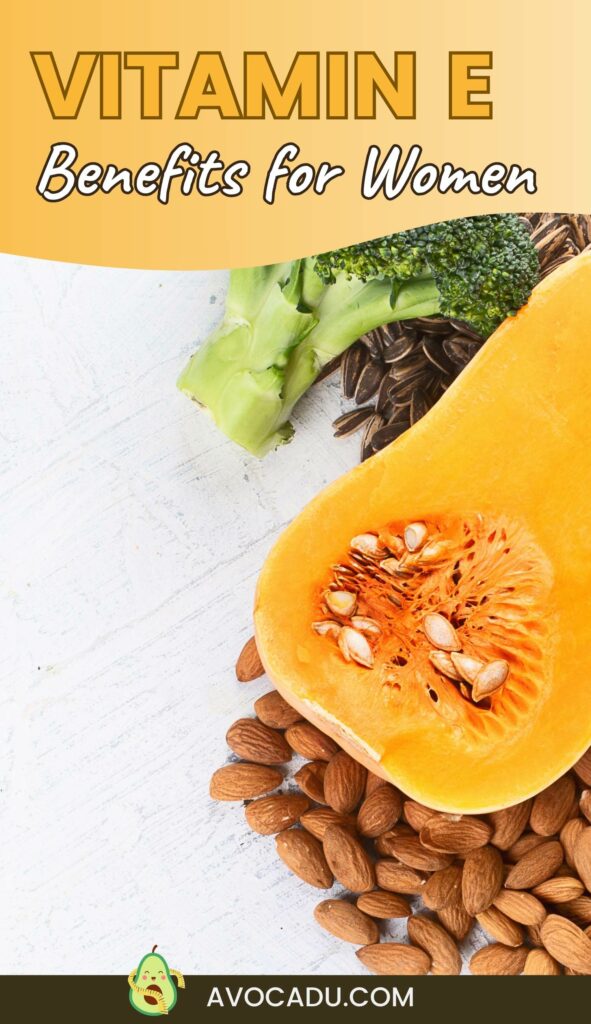The Benefits of Vitamin E: An Antioxidant Powerhouse
Looking to be the best version of yourself? One surefire way to level up your health game is by making sure you’re getting your fair share of Vitamin E.
This isn’t just another item on the long list of vitamins; Vitamin E stands out with its powerful antioxidant properties that go to bat for your health every day.
Not only is this nutrient essential for many of the body’s vital functions, but the benefits of Vitamin E might also surprise you with their range and depth.
From safeguarding your skin against the wear and tear of daily life to keeping your heart beating strong, Vitamin E is the silent champion working behind the scenes.
But it’s not just about physical health. The potential benefits of Vitamin E stretch into the realm of cognitive health, possibly playing a role in maintaining your brain’s agility as you age.
Add to that a possible boost to your immune system, and you’re looking at a multi-talented nutrient that deserves a starring role in your diet.

Ready to dive deeper into understanding the many benefits of Vitamin E? Let’s unlock the secrets of this antioxidant powerhouse together.
Related Article: The Sunshine Vitamin: Why Vitamin D is Essential for Your Health
This post may contain affiliate links, which helps keep this content free. Please read our disclosure for more info.
The Antioxidant in Vitamin E
Ever heard of antioxidants? These are special compounds that help protect your body from a type of damage called oxidative stress.
When we talk about antioxidants, Vitamin E undoubtedly shines bright.
This vital nutrient plays an essential role in neutralizing harmful compounds known as free radicals, which are produced in your body as byproducts of everyday activities like digesting food or exposure to environmental toxins.
Free radicals, while necessary in small amounts for certain bodily processes, can cause damage when their levels get too high.

They are like tiny thieves, stealing electrons from other molecules in a process called oxidation. The result? Damaged cells, proteins, and even DNA.
This is where Vitamin E steps in. In a critical role, this vitamin steps in to neutralize these free radicals by donating one of its own electrons, thereby preventing them from causing further damage and maintaining the overall health of your cells.
This is a vital process, often underestimated, happening within your body to maintain balance and health.
But the benefits of Vitamin E’s antioxidant powers don’t just stop at cellular protection. This action has a ripple effect, leading to a myriad of health benefits throughout your body, from your skin to your heart to your brain.
Skin Health: More than Just a Pretty Face

When you think of Vitamin E, your mind might first go to its role in skin health. And for a good reason! Vitamin E can be a powerful ally in maintaining the health and vitality of your skin.
The first line of defense your skin has against environmental factors is its barrier, and Vitamin E helps strengthen this barrier, especially against harmful UV rays.
It acts like a shield, protecting your skin cells from the damage these rays can cause, which can lead to premature aging and skin cancer.
But remember, while Vitamin E can help, it doesn’t replace the need for broad-spectrum sunscreen.

If you’ve ever had a cut or scrape, you might have noticed products boasting Vitamin E in their ingredients. That’s because Vitamin E can also aid in the wound healing process.
It’s thought to help speed up cell regeneration, making it beneficial for healing and reducing the appearance of scars.
As for the aging process – we all face it. However, Vitamin E might be a valuable ally in this battle.
Its antioxidant properties help protect your skin from damage, including from the wear and tear that can lead to wrinkles and fine lines.
By combating the impact of free radicals, Vitamin E might help keep your skin looking youthful and radiant for longer.
Related Article: 7 Best Vitamins and Supplements for Acne and Skin Health
Cardiovascular Health: Heart of the Matter

Your heart will thank you for adding Vitamin E to your diet. The benefits of Vitamin E for cardiovascular health are extensive, making it a vital nutrient in the fight against heart disease.
One of the ways Vitamin E benefits your heart is by helping to balance your cholesterol levels.
Cholesterol, in and of itself, isn’t bad. It’s a necessary substance your body uses to build cells.
The issue arises when you have too much of the ‘bad’ cholesterol, known as LDL. High LDL cholesterol can lead to plaque buildup in your arteries, increasing your risk of heart disease.
Vitamin E comes into play here as a natural defense. Thanks to its antioxidant properties, it can help prevent LDL cholesterol from becoming oxidized, which is when it becomes most harmful.
By helping to keep LDL cholesterol in check, Vitamin E plays a crucial role in maintaining cardiovascular health.
Not only that, but studies have shown that Vitamin E may help prevent the formation of blood clots, which could lead to a heart attack or stroke. It does this by making your blood less sticky, reducing the likelihood of clot formation.
Research is ongoing into the role of Vitamin E in reducing inflammation, a key factor in plaque buildup in arteries.
By potentially reducing inflammation, Vitamin E could help decrease the risk of heart disease even further.
It’s pretty clear that adding Vitamin E to your diet could mean a world of good for your heart.
Eye Health: Clearing the View

Nobody likes blurry vision, right? It turns out that Vitamin E may play a crucial role in maintaining your eye health as you age.
One of the primary concerns when it comes to eye health is the risk of developing age-related conditions, such as macular degeneration and cataracts.
These conditions are leading causes of vision impairment and blindness in older adults.
The good news? Vitamin E may offer a line of defense against these potential threats.
Research suggests that the antioxidant properties of Vitamin E can help protect the cells in your eyes from the damaging effects of free radicals.
This is especially important in the context of macular degeneration, a condition that occurs when the central portion of the retina (the macula) deteriorates.
The antioxidants in Vitamin E may help slow this process by neutralizing harmful free radicals.
But the potential benefits of Vitamin E for eye health don’t stop at macular degeneration.
It’s also been suggested that Vitamin E could play a role in reducing the risk of cataracts. These are cloudy areas in the eye’s lens that can interfere with vision.
Vitamin E’s antioxidant activity might help prevent or slow down the formation of cataracts by preventing oxidative damage in the lens of the eye.
It’s important to note that while these findings are promising, more research is needed to fully understand the potential benefits of Vitamin E for eye health.
Brain Health: Remember the E

In our quest for optimum health, it’s crucial not to overlook the importance of maintaining a healthy brain.
Research suggests that Vitamin E may play a beneficial role in this area, offering potential protective effects against cognitive decline.
Cognitive decline refers to a gradual decrease in cognitive functions like memory and thinking skills.
It’s a normal part of aging to some extent, but for some, it can progress into more serious conditions like dementia or Alzheimer’s disease.
Here’s where Vitamin E might play a part.
As we’ve already mentioned, Vitamin E is known for its antioxidant properties, and these could be a game-changer when it comes to brain health.
The brain is particularly vulnerable to oxidative stress, a damaging process caused by free radicals.
As one of the most potent antioxidants, Vitamin E may help neutralize these free radicals, protecting brain cells from damage.
Several studies have found a link between higher intake of Vitamin E and a lower risk of cognitive decline as we age.
Some research has even suggested that Vitamin E could slow the progression of diseases like Alzheimer’s, though more studies are needed to confirm these findings.
It’s also important to note that the brain is a fatty organ, and being that Vitamin E is fat-soluble, it has a particular affinity for protecting fatty structures.
This could further underline the potential importance of Vitamin E in maintaining brain health.
Immune Health: Not to be Sneezed At

Our immune system is our body’s natural defense against infection and disease, and it’s essential to keep it strong and healthy. Interestingly, Vitamin E may have a role to play in maintaining and even boosting immune health.
As we age, our immune response can become less robust. This makes us more susceptible to infections, diseases, and potentially longer recovery times.
One of the significant benefits of Vitamin E is that it may help offset some of these age-related changes in the immune system.
Vitamin E’s antioxidant properties are, once again, at the center of this benefit. By protecting cells from damage by free radicals, Vitamin E helps ensure that our immune cells – like T cells, which are a type of white blood cell that guard against infection – are functioning optimally.
Research has shown that Vitamin E can enhance the function of these T cells, making them more efficient at responding to and dealing with infections. This is especially important for older adults, as T cell function can decline with age.
In addition to its impact on T cells, Vitamin E also helps stimulate the production of natural killer cells, which seek out and destroy germs and cancer cells.
Plus, it enhances the production of B cells, immune cells that produce antibodies to destroy bacteria.
Natural Sources of Vitamin E: Eat Your Way to Health

Vitamin E is readily available in a wide range of tasty and nutritious foods. Incorporating these into your diet can be an enjoyable way to ensure you’re reaping the benefits of Vitamin E.
Let’s explore some of these dietary sources.
Nuts and Seeds: Almonds, sunflower seeds, hazelnuts, and pine nuts are among the best sources of Vitamin E. These make for a perfect snack or can be added to salads, yogurts, or your morning oatmeal for a healthful crunch.
Leafy Greens: Spinach, Swiss chard, and turnip greens are excellent plant-based sources of Vitamin E. Include them in your salads, stir-fries, or smoothies to add a nutritious boost.
Vegetable Oils: Sunflower, wheat germ, and safflower oils are among the highest in Vitamin E content. Use these oils in cooking or salad dressings to enhance your Vitamin E intake.
Fruits: Certain fruits, like avocados and kiwis, also offer a decent amount of Vitamin E. Avocados can be used in everything from salads and sandwiches to guacamole and smoothies. Kiwis make for a refreshing snack or salad addition.
Vegetables: Broccoli and butternut squash are notable for their Vitamin E content. Roast them, steam them, or add them to a stir-fry for a nutritious meal.
Fish: Certain types of fish, such as rainbow trout and Atlantic salmon, are good sources of Vitamin E. They can be grilled, baked, or pan-seared for a delicious, healthy main course.
A varied diet is a key to ensuring you’re getting a broad spectrum of nutrients, not just Vitamin E.
Try incorporating a variety of these foods into your meals. This way, you can be sure to enjoy the many benefits of Vitamin E, one bite at a time.
Eating your way to health has never been so delicious!
Supplementing Vitamin E: Balance is Key

Vitamin E supplements can ensure you get your daily recommended intake, particularly for those struggling to absorb fat-soluble vitamins due to certain health conditions.
However, it’s essential to balance enthusiasm with caution before deciding to start supplementation.
Despite the potential benefits of supplements, obtaining Vitamin E through a varied and balanced diet is typically the ideal method.
Foods offer a complex network of vitamins, minerals, dietary fibers, and other beneficial substances that are hard to replicate with supplements.
Also, a higher dosage of vitamin supplements isn’t always the better choice. In fact, excessive Vitamin E can cause side effects like nausea, diarrhea, stomach cramps, fatigue, weakness, headache, blurred vision, rash, and even bruising and bleeding.
Vitamin E supplements might also interact with other medications, such as heart disease or cancer treatments.
The upper limit for Vitamin E intake for adults is set at 1,000 milligrams. It’s crucial not to exceed this without medical supervision, as it could potentially lead to “Vitamin E toxicity.”
Consult with a healthcare provider before beginning a Vitamin E supplement if you think you’re not getting enough Vitamin E from your diet or if you have a medical condition that affects fat absorption.
They can assess your needs, consider any potential interactions with medications you’re taking, and guide you on the appropriate dosage.
While the benefits of Vitamin E warrant the enthusiasm, it’s critical to maintain balance. Approach Vitamin E supplementation mindfully, understanding its potential advantages and disadvantages under the guidance of a healthcare provider.
Balancing enthusiasm with caution can help ensure you maximize the benefits of Vitamin E without risking unwanted side effects.
Embracing Vitamin E: Your Path to Optimal Health

The benefits of Vitamin E are far-reaching, and this essential nutrient deserves a spot in your health-conscious lifestyle.
It’s about finding the right balance and ensuring you’re giving your body the nutrients it needs to function at its best.
But always remember, a well-rounded diet and overall healthy lifestyle are your best bet for achieving optimal health.

